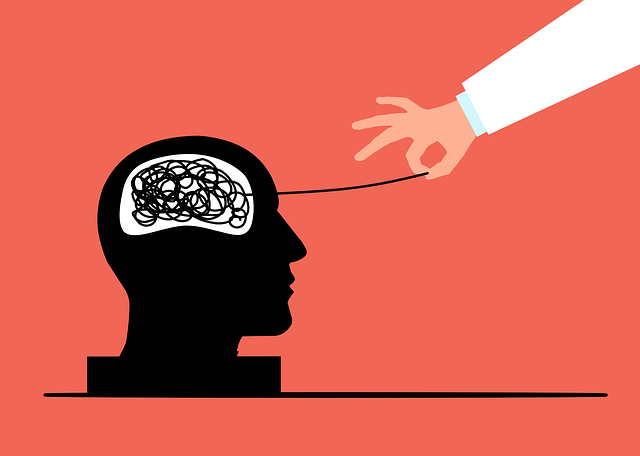Prioritizing mental wellness involves managing emotional, psychological, and social aspects for resilience against daily challenges. Techniques like Parker Somatic Experiencing (SE) therapy, journaling, empathy building, and self-awareness exercises enhance self-compassion and promote healing. Identifying personal needs is key to crafting an impactful self-care routine that includes activities such as mindfulness, meditation, spending time in nature, or hobbies. Incorporating SE therapy tools into resources like podcasts can offer valuable insights. Consistent daily rituals focusing on stress management, emotional regulation, and sleep hygiene are crucial for mental wellness. A dynamic self-care routine adapts to life stages, incorporates diverse techniques like SE therapy, and updates strategies based on unique needs for improved well-being.
Mental wellness is a cornerstone of overall health, and cultivating a self-care routine can be transformative. This article guides you through a holistic approach to enhancing mental wellness by introducing powerful techniques like Parker Somatic Experiencing (PSE) Therapy. We’ll explore why prioritizing self-care is essential, delve into the science behind PSE, help you identify personalized needs, provide practical steps for building rituals, and offer strategies for sustaining your mental wellness journey over time.
- Understanding Mental Wellness and Self-Care: The Importance of Prioritizing Yourself
- The Role of Parker Somatic Experiencing (PSE) Therapy in Building a Routine
- Identifying Personal Needs: What Constitutes Effective Self-Care?
- Crafting Your Daily Rituals: Practical Steps for Implementation
- Sustaining and Adjusting Your Mental Wellness Journey Over Time
Understanding Mental Wellness and Self-Care: The Importance of Prioritizing Yourself

Understanding mental wellness is a crucial step towards prioritizing your well-being. It involves recognizing and managing your emotional, psychological, and social state, ensuring a sense of balance and resilience in daily life. Self-care, an integral aspect of mental wellness, is about making time for activities that nourish and restore your mind, body, and spirit. This proactive approach to mental health is essential, as it empowers individuals to navigate life’s challenges with greater ease.
By integrating practices like Parker Somatic Experiencing Therapy (SE), Mental Wellness Journaling Exercises, Empathy Building Strategies, and Self-Awareness Exercises into your routine, you can foster a deeper connection with yourself. These techniques offer guidance in exploring and releasing trapped emotions, enhancing self-compassion, and cultivating an environment where healing can flourish. Prioritizing self-care isn’t just a trend; it’s a vital investment in your overall health and happiness.
The Role of Parker Somatic Experiencing (PSE) Therapy in Building a Routine

Parker Somatic Experiencing (PSE) Therapy plays a pivotal role in developing a robust mental wellness self-care routine. This innovative approach focuses on the mind-body connection, helping individuals process and release traumatic memories or emotional experiences that may be hindering their current well-being. By engaging in PSE therapy, one can learn to regulate their autonomic nervous system, thereby fostering a deeper sense of calm and resilience.
This therapy is not just about addressing past traumas; it equips mental health professionals with valuable tools for risk assessment (a crucial aspect often overlooked in Mental Health Education Programs Design). Through PSE, therapists can assist clients in identifying and managing stressors, which forms the backbone of a sustainable self-care routine. Moreover, integrating PSE into one’s mental wellness practices can enhance the overall effectiveness of a mental wellness podcast series production, providing listeners with actionable insights that resonate on both an intellectual and emotional level.
Identifying Personal Needs: What Constitutes Effective Self-Care?

Identifying your unique personal needs is a crucial step in developing an effective self-care routine. What constitutes “effective” self-care varies from person to person, and it’s essential to go beyond surface-level practices. Self-care isn’t just about treating symptoms; it’s about understanding the root causes of stress, anxiety, or other mental health challenges. Techniques like Parker Somatic Experiencing Therapy (SE) offer valuable insights into our physical and emotional responses, helping individuals reconnect with their bodies’ natural healing mechanisms.
This process involves introspection and may include activities such as journaling, meditation, spending time in nature, engaging in hobbies, or practicing mindfulness. Social Skills Training can complement self-care by enhancing your ability to connect with others, fostering support systems that contribute to overall well-being. By recognizing what truly nourishes you—whether it’s solitude, creative expression, or social interaction—you can tailor a self-care routine that supports positive thinking and promotes mental health resilience.
Crafting Your Daily Rituals: Practical Steps for Implementation

Crafting your daily rituals is a powerful step in prioritizing your mental wellness and cultivating a robust self-care routine. Start by identifying key areas in your life that require attention – be it stress management, emotional regulation, or better sleep hygiene. Integrate practices like mindfulness meditation, deep breathing exercises, or gentle stretching to nurture both mind and body. The consistency is key; aim for small, manageable actions that can fit seamlessly into your existing routine.
Consider incorporating techniques from Parker Somatic Experiencing Therapy (SE), a method focusing on resolving traumatic memories and fostering emotional well-being promotion. SE offers powerful tools for conflict resolution within the body-mind connection. By embracing these practical steps, you’re not just implementing self-care; you’re actively weaving moments of calm and restoration into your day, setting the stage for improved mental health.
Sustaining and Adjusting Your Mental Wellness Journey Over Time

Developing a mental wellness self-care routine is an ongoing process that requires commitment and flexibility. Just as our emotional needs change with life stages, so should our strategies for coping and thriving. What works in your 20s may not be suitable in your 30s or 40s, and that’s okay! The key lies in staying attuned to your inner self and adjusting your approach accordingly.
Consider incorporating techniques like Parker Somatic Experiencing Therapy (SE), which focuses on resolving deep-seated trauma and promoting physical and emotional safety. SE can be a powerful tool for self-esteem improvement, helping you gain a deeper sense of control over your mental wellness. Over time, adapt your practices to include new strategies for stress management, conflict resolution techniques from the Mental Wellness Podcast Series Production, and activities that nurture your unique needs. This ongoing evolution ensures your self-care routine remains relevant and effective as you navigate life’s twists and turns.
Developing a mental wellness self-care routine is a transformative journey, and incorporating techniques like Parker Somatic Experiencing (PSE) therapy can significantly enhance its effectiveness. By understanding your personal needs and crafting tailored daily rituals, you can foster resilience and overall well-being. Remember, this is an ongoing process that requires sustainability and adaptability over time. Embrace the power of self-care to navigate life’s challenges with grace and strength.














